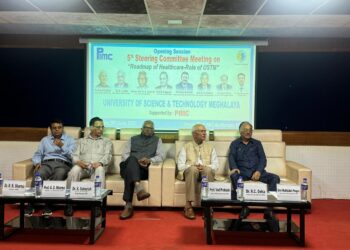Indian Institute of Technology (IIT), Guwahati researchers have developed an Artificial Intelligence (AI) model to predict the healing of thigh bone fractures after surgery.
The AI model is developed by Souptick Chanda, Assistant Professor, Department of Biosciences and Bioengineering, at IIT Guwahati and his team . Apart from lessening the financial burden for patients who undergo treatment for thigh fractures, the model can be used to help reduce the healing time and pain.
According to the team of researchers, the model can be used to assess the healing outcomes of various fracture fixation strategies, to choose the convenient technique for the patient, based on their unique physiologies and fracture type.
The research paper describing the model and the outcomes was published in the open-source journal – “PLoS One”.
The Assistant Professor of Department of Biosciences and Bioengineering in IIT Guwahati – Souptick Chanda noted that “AI has tremendous potential when it comes to understanding and predicting complicated biological circumstances and hence, might play a vital role in health sciences applications.”
In order to understand the healing process of fracture after various treatment methods, the research team has used a combination of Finite Element Analysis and the AI tool “Fuzzy Logic”.
The team further examined the influence of different screw fixation mechanisms to compare the fracture healing efficacies of each process.
Besides, the predictions of healing made by the model agreed well with experimental observations, pointing to its reliability.
According to Souptick Chanda, before undergoing a fracture treatment surgery the simulation model can potentially help a surgeon choose the right implant or right technique. In addition to various biological and patient-specific parameters, the model can also account for different clinical phenomena, such as smoking, diabetes, etc. The model can also be adapted for veterinary fractures which are, physiologically and in various aspects, similar to those occurring in humans.
The researchers plan to develop a software or app based on the algorithm that can be used in hospitals and other healthcare institutions as part of their fracture treatment protocols.
The team currently is conducting animal studies with a team from North Eastern Indira Gandhi Regional Institute of Health and Medical Sciences Hospital in Shillong to validate and fine-tune certain parameters of the AI tool.









